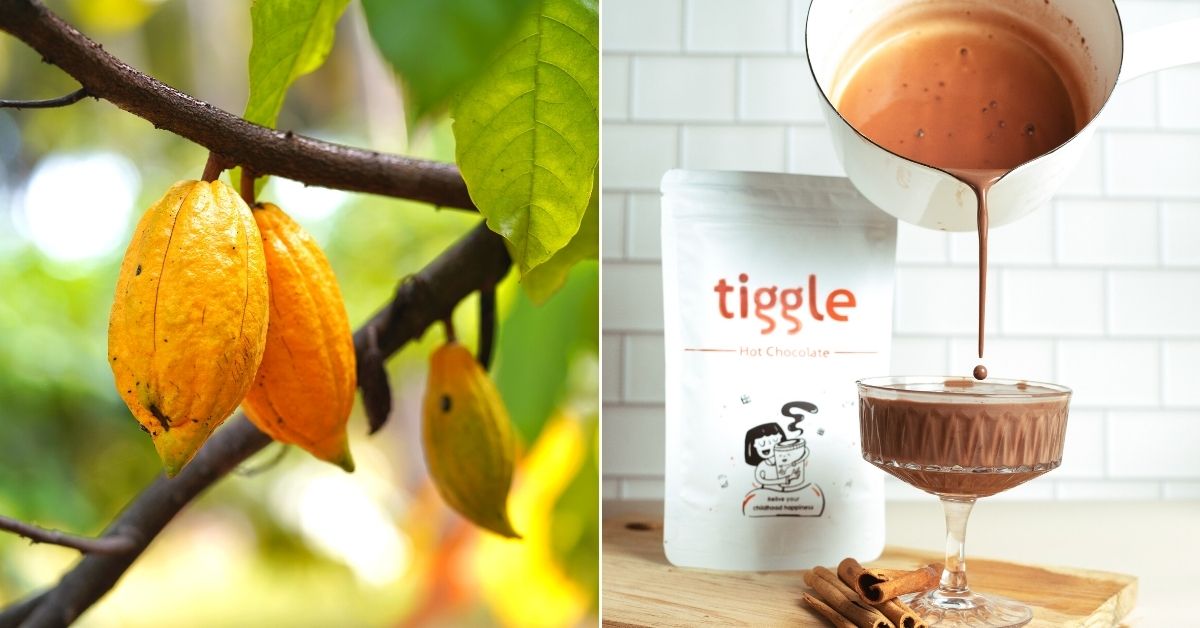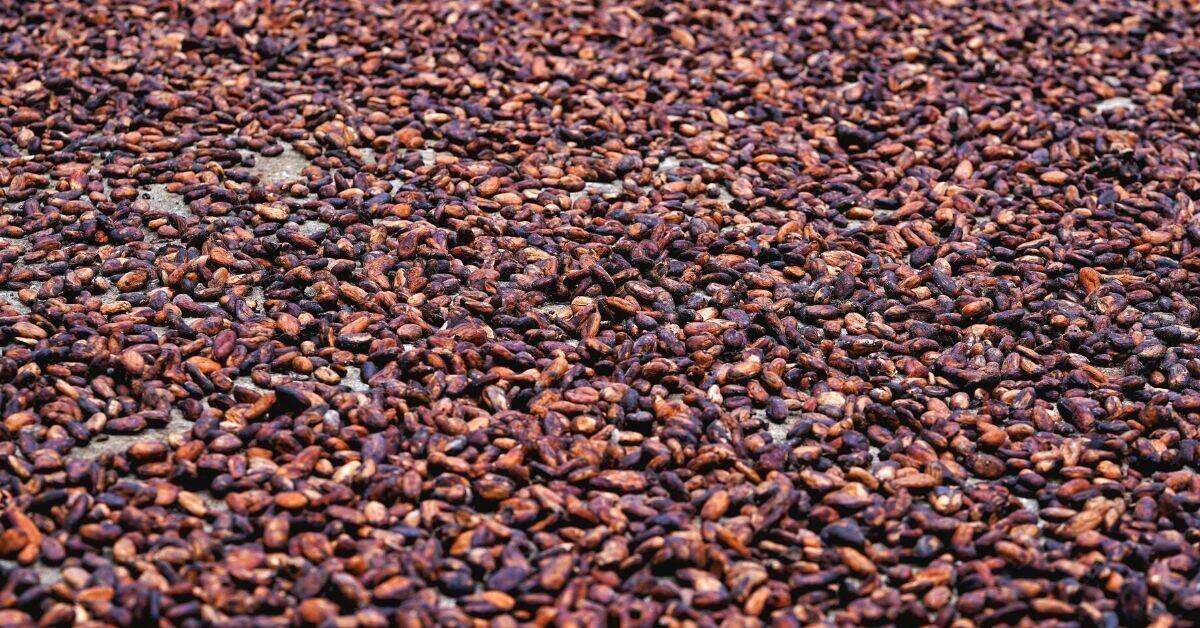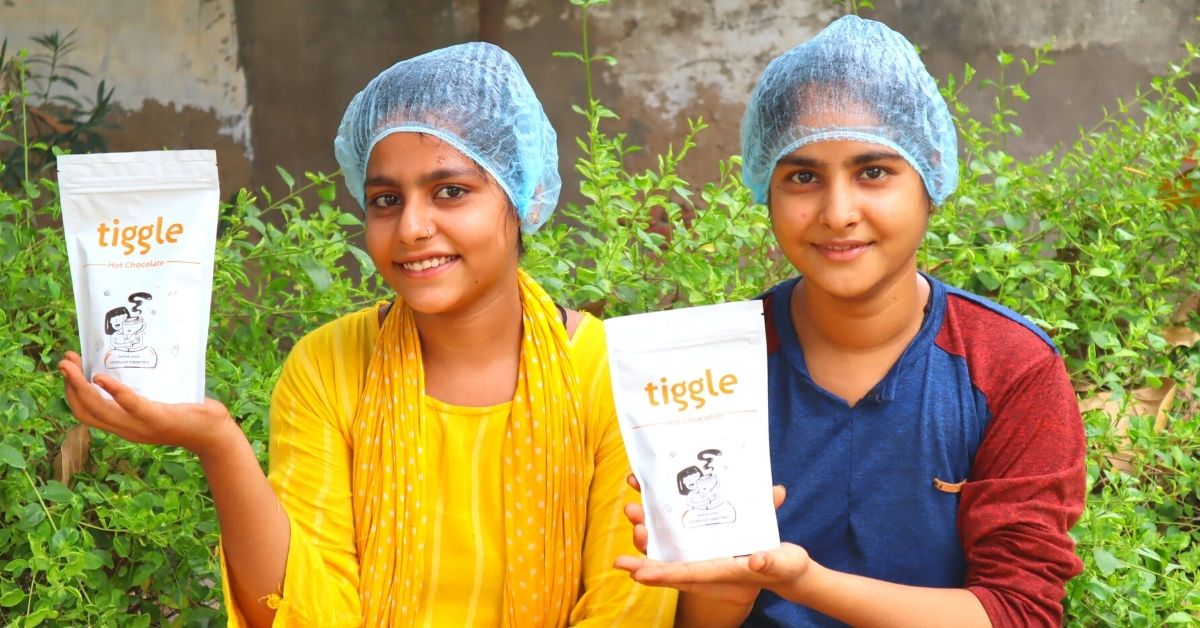Anuva Kakkar, the 23-year-old entrepreneur behind Tiggle, an Agra-based D2C organic hot chocolate brand, has come a long way in a very short period despite the ongoing COVID-19 pandemic. From selling cups of hot chocolate to commuters outside the DLF Phase-3 metro station in Gurugram to starting her brand of hot chocolate powder and selling over 2 lakh packets through 2021, it has been a mercurial rise.
Made of premium cocoa sourced from a 40-acre family-owned certified organic farm near Pollachi, Tamil Nadu, Tiggle today sells three ‘premium’ varieties of hot chocolate powder — Light Hot Chocolate Mix, Dark Hot Chocolate Mix and Jaggery Hot Chocolate Mix. So, how did this entrepreneur from Agra set up her venture in such a challenging time for commerce?

A Love for Hot Chocolate
Born and raised in Agra, Anuva grew up in an upper-middle-class household with a father, who is a small business owner and mother, a banker. Upon completing her graduation in business administration in 2019 from Banasthali University, she worked at a startup called Urban Company (formerly UrbanClap) in Gurugram. It was while working there that the idea of starting Tiggle first came.
“I’m a lover of hot chocolate. One day, while working in Gurugram, I began craving a cup of hot chocolate. As a fresher starting her professional career, I would have to travel or order from a cafe and just spend Rs 200 on a cup. I could only afford this a couple of times in a month. Instead of figuring out how to budget for my hot chocolate cravings, I thought why not make it at home. This turned out to be a terrible idea because of the lack of quality hot chocolate mixes in the market,” recalls Anuva, in a conversation with The Better India.
Simultaneously, when visiting any 24/7 outlets or any retail store, the only hot beverages she could find on their shelves was tea or coffee. Meanwhile, in the cold beverage section, she would see a variety of products. That’s when she thought about building something new and innovative in the hot beverage section and elevating hot chocolate to the status of tea or coffee.
Following this, the time came to evaluate these ideas and whether they’re worth pursuing. That’s when she began researching and creating her own basic hot chocolate recipe using simple ingredients found in the market. The next step was figuring out whether there was a demand for such a product. Asking friends and work colleagues didn’t seem like a good idea at the time because she feared bias in their feedback. She wanted the feedback of strangers.
“So, I bought this large jar from the market, designed and printed a couple of pamphlets, made about 25 cups of hot chocolate, bought some disposable cups and decided to sell them for Rs 30 a cup outside the DLF Phase-3 metro station, a popular point of commute for employees from different companies making their way home. On my first day, I asked various store owners and vendors whether I could set up a stall near their place for 30 minutes. This wasn’t easy because many of them rejected my requests straight away,” recalls Anuva.
Thankfully, one biryani shop owner was kind enough to let her set up a stall. Anuva recalls how the moment was filled with nerves, palm-sweating, and shaky legs as she began distributing her pamphlets and selling cups of hot chocolate.
“Within 50 minutes, however, I was able to sell all my cups, while taking feedback. This gave me confidence. The next step was figuring out whether I could get others to sell it for me. After selling my cups for a week next to the biryani stall, I ended up partnering up with a kiosk inside the metro station sometime in January 2020. They would take a monthly rent from me and sell my hot chocolate. Every morning, I would wake up at about 5 am, make a couple of litres of hot chocolate and take that to the kiosk owner who would sell it for the rest of the day,” she says.
In the evening, post-office hours, she would collect her earnings for the day and ask the kiosk owner’s feedback. On weekends, she would stand with the kiosk owner, sell the hot chocolate and take feedback from customers rolling in and out of the metro station.
It started with 2 litres of hot chocolate a day and went up to about 10-12 litres by the end of the first month because of rising demand. Instead of 5 am, she began waking up at 4 am to make her hot chocolate recipe, and distribute it to not just one but multiple kiosks in the station.
This continued for another two months, but she realised that this wasn’t scalable. That’s when instead of selling cups of liquid hot chocolate, she pivoted to making a quality hot chocolate powder unlike the ones found in the market, which include a thousand different ingredients.
The idea was to make something premium and affordable.

A Venture Born During COVID-19
“I began reaching out to people in this field to formulate my hot chocolate powder recipe. By March 2020, I was in Himachal Pradesh, selling my hot chocolate mix to cafes and taking their feedback when the pandemic struck. Although the pandemic brought a long pause to my vision of starting a venture, it also gave me time to learn about online advertising, marketing, how to package a product, etc. I also spent the next four to five months talking to a variety of people and finding farms and farmers in India growing premium cocoa,” she recalls.
During this time, she ordered and tasted cocoa samples from nearly 50 different farms across the country. The vision for Tiggle was not just obtaining premium quality cocoa, but also finding ways of positively impacting farmers growing them. They finally partnered with the one 40-acre family owned organic farm in Pollachi, Tamil Nadu.
“The reason we partnered with this farm is because of their consistent cocoa quality, farm freshness, and the direct impact which we could create on the farmers,” she says.
The whole process of growing cocoa in the farms includes handpicking the cocoa fruit, mulching, fermentation, harvesting, sun drying, and grinding. As Anuva explains, the process of growing good quality consistently is tedious. The fermentation and drying process are the stages when there’s a high chance of attracting mould or fungus in cocoa.
“The farm we chose did the best work of ensuring that the cocoa grown is mould-free. The farm in Pollachi practices growing cocoa organically is free of chemicals and pesticides,” she adds.
Once harvested, there are different methods of roasting cocoa. Tiggle Hot Chocolate comes in two different variants — dark and light. The dark variant contains the dutch processed cocoa (treated with an alkalizing agent to reduce the natural acidity of cocoa) and the light one contains naturally processed cocoa.

“When we started Tiggle in January 2021, we would source about 5-10 kg of cocoa a month, but now it’s about 400-500 kg. This cocoa is directly shipped from Pollachi to our manufacturing unit in Agra. We dedicated the first year of our operations to selling directly through our website running Facebook and Google ads. Before launching Tiggle, we put in the work of developing a well-designed website. After developing the product, we built an online community around it giving our customers the latest on every new development,” she says.
The bootstrapped venture has recently started selling on Amazon and Flipkart as well.
Anuva was alone in making the hot chocolate mix in the backyard of her house with some help from her mother, packaging and dispatching packets to customers. Today, she employs five women in her manufacturing unit, all of whom had lost their jobs during the lockdown. Her team today stands at 12 people, which includes freelancers and those working on a contractual basis.
“We will spend the coming year finding ways of expanding our manufacturing capabilities and consider ways of obtaining some external funding. Last year was all about setting up our base. Recently launching our first organic jaggery (which we source from a farm outside Pune) based hot chocolate mix, we plan on launching more flavours of hot chocolate. We aim to raise hot chocolate to the status of coffee,” she says.
(Edited by Yoshita Rao)
No comments:
Post a Comment